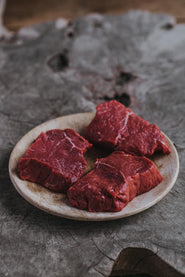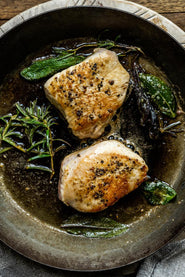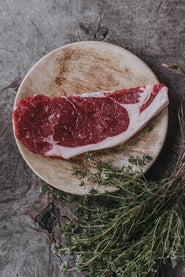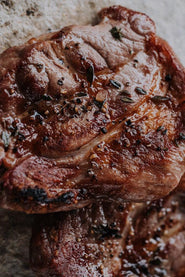Native breeds are seeing an incredible renaissance, but even with this growth in popularity, 20% of native livestock breeds are at risk of being lost for good. We explore why native breeds are vital to the success of our countryside.
What are Native Breeds?
Native breeds encompass all types of livestock, from pigs and poultry to cattle and sheep. Native breeds are traditional British breeds who’s genes have remained unchanged for centuries.

Why are Native Breeds so Important?
Native breeds are incredibly important to the success of local farming communities.
“Native breeds provide a major contribution to our rural economy, both economically and culturally. There are around 30,000 herds and flocks of native breeds in the UK. They contribute over £700 million to UK local economies.” Says Jimmy Doherty, President of Rare Breeds Survival Trust.
Native breeds give communities a sense of identity, creating a real sense of pride for their centuries-old homegrown livestock, but also more importantly native breeds are vital to reducing our climate impact.

Native breeds have evolved for centuries as part of their ‘terroir’, they are hardy and well equipped to deal with the climate, soil, disease and the food source available where they are grown. Native breeds are an integral part of our rural landscape, which means they can be reared in harmony with nature, using low input systems that rely on what is available in that specific geographical area.
For example, our native Red Rubies, born on Exmoor in Devon, can digest the rough moorland grass and convert it into protein with zero input. This allows land to be farmed and communities to be sustained where otherwise there would be very little resource available. Turning a rugged and difficult land into an abundant rich landscape that produces nourishing, healthy, high welfare food that simultaneously becomes a haven for wildlife.

By farming in a way that uses as few inputs as possible we can reduce our climate impact, and in many cases regenerate our landscape to put much more in than we take out. Native breeds are vital to the success of this style of farming.
In the South West grassland forms a vital part of our countryside. For centuries it has been the principal food source for cattle and sheep. Fields of just grass provide all nutritional components an animal needs. Our fields contain a variety of other plant species including herbs, wildflowers, and clovers. Rich in essential vitamins and minerals our grasses not only provide incredible healthy nutrition but also support a diverse range of insects and wildlife.
How Can You Support Native Breeds
The best way to aid the survival of Britain's rare breeds is to support the farmers who rear them – and in doing so you can end up enjoying some of the finest meat on earth.
We need to ‘eat it, to keep it’. We believe farmers will continue to move towards native breed regenerative farming if there continues to be increasing demand. We all have a superpower, and that’s the power of consumer demand. With this power, we can change the shape of our countryside by supporting native breed farmers who practice sustainable and regenerative agriculture.

“When buying, it’s all down to trusting the source. People who work as much for passion as they do profit, producers who care deeply about animal welfare, environmental impact and flavour. Provenance, traceability and peace of mind. Prices may be higher, but this is flavour to savour, meat miles removed from the pallid horrors of intensive farming. In devouring the best rare-breed meat, you not only thrill the tastebuds but keep the gene pool fizzing, too.” Says food writer Tom Parker-Bowles.






